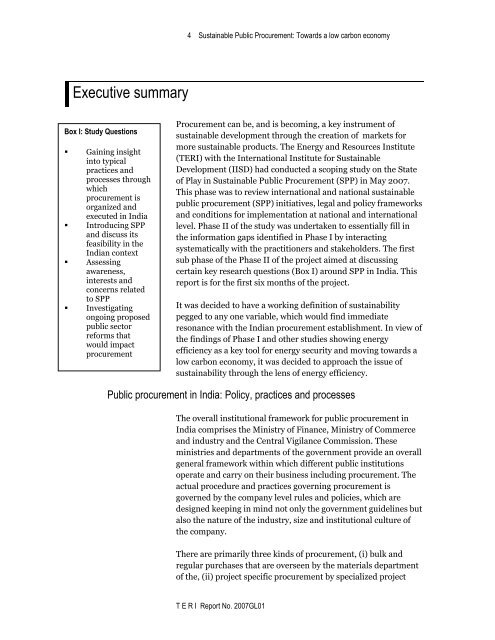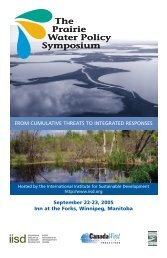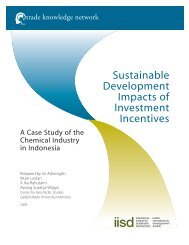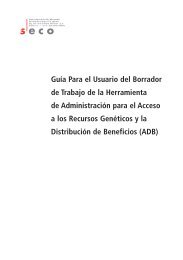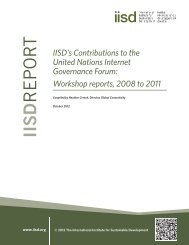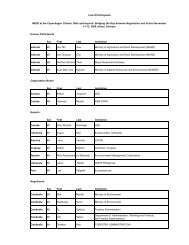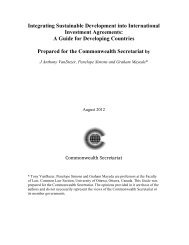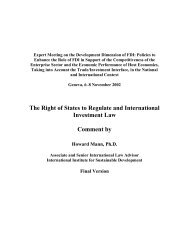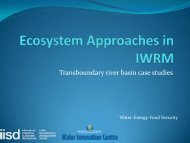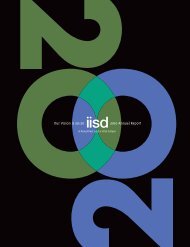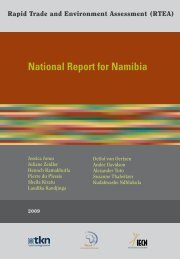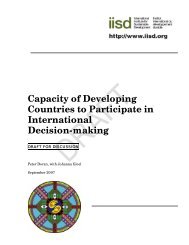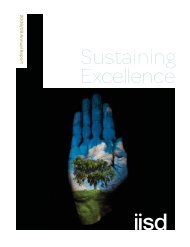Sustainable Public Procurement: Towards a lowâcarbon economy
Sustainable Public Procurement: Towards a lowâcarbon economy
Sustainable Public Procurement: Towards a lowâcarbon economy
You also want an ePaper? Increase the reach of your titles
YUMPU automatically turns print PDFs into web optimized ePapers that Google loves.
4 <strong>Sustainable</strong> <strong>Public</strong> <strong>Procurement</strong>: <strong>Towards</strong> a low carbon <strong>economy</strong><br />
Executive summary<br />
Box I: Study Questions<br />
<br />
<br />
<br />
<br />
Gaining insight<br />
into typical<br />
practices and<br />
processes through<br />
which<br />
procurement is<br />
organized and<br />
executed in India<br />
Introducing SPP<br />
and discuss its<br />
feasibility in the<br />
Indian context<br />
Assessing<br />
awareness,<br />
interests and<br />
concerns related<br />
to SPP<br />
Investigating<br />
ongoing proposed<br />
public sector<br />
reforms that<br />
would impact<br />
procurement<br />
<strong>Procurement</strong> can be, and is becoming, a key instrument of<br />
sustainable development through the creation of markets for<br />
more sustainable products. The Energy and Resources Institute<br />
(TERI) with the International Institute for <strong>Sustainable</strong><br />
Development (IISD) had conducted a scoping study on the State<br />
of Play in <strong>Sustainable</strong> <strong>Public</strong> <strong>Procurement</strong> (SPP) in May 2007.<br />
This phase was to review international and national sustainable<br />
public procurement (SPP) initiatives, legal and policy frameworks<br />
and conditions for implementation at national and international<br />
level. Phase II of the study was undertaken to essentially fill in<br />
the information gaps identified in Phase I by interacting<br />
systematically with the practitioners and stakeholders. The first<br />
sub phase of the Phase II of the project aimed at discussing<br />
certain key research questions (Box I) around SPP in India. This<br />
report is for the first six months of the project.<br />
It was decided to have a working definition of sustainability<br />
pegged to any one variable, which would find immediate<br />
resonance with the Indian procurement establishment. In view of<br />
the findings of Phase I and other studies showing energy<br />
efficiency as a key tool for energy security and moving towards a<br />
low carbon <strong>economy</strong>, it was decided to approach the issue of<br />
sustainability through the lens of energy efficiency.<br />
<strong>Public</strong> procurement in India: Policy, practices and processes<br />
The overall institutional framework for public procurement in<br />
India comprises the Ministry of Finance, Ministry of Commerce<br />
and industry and the Central Vigilance Commission. These<br />
ministries and departments of the government provide an overall<br />
general framework within which different public institutions<br />
operate and carry on their business including procurement. The<br />
actual procedure and practices governing procurement is<br />
governed by the company level rules and policies, which are<br />
designed keeping in mind not only the government guidelines but<br />
also the nature of the industry, size and institutional culture of<br />
the company.<br />
There are primarily three kinds of procurement, (i) bulk and<br />
regular purchases that are overseen by the materials department<br />
of the, (ii) project specific procurement by specialized project<br />
T E R I Report No. 2007GL01


